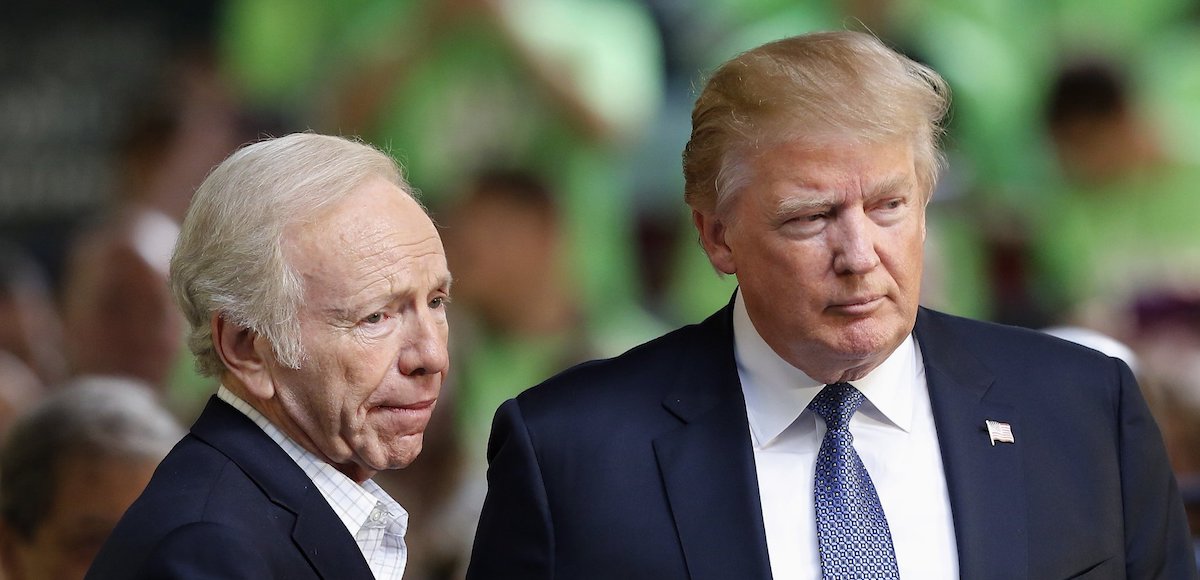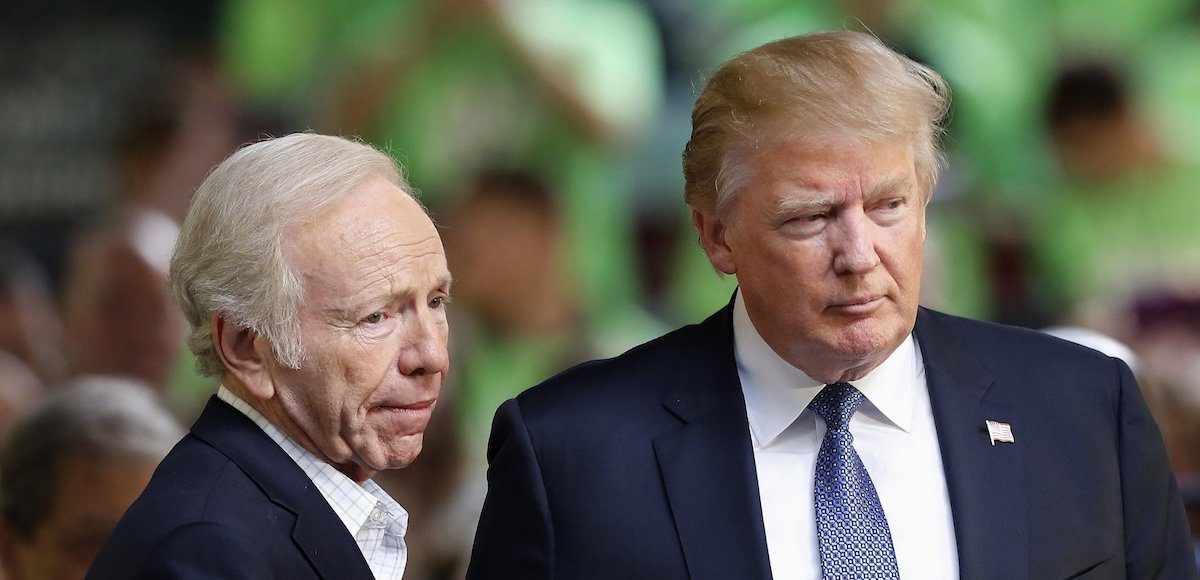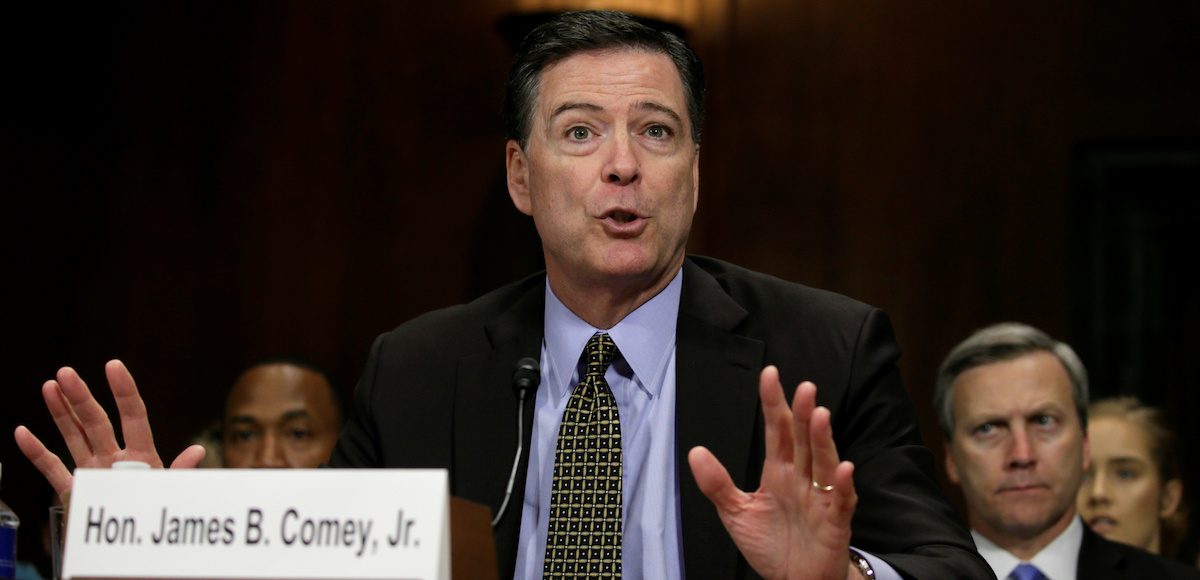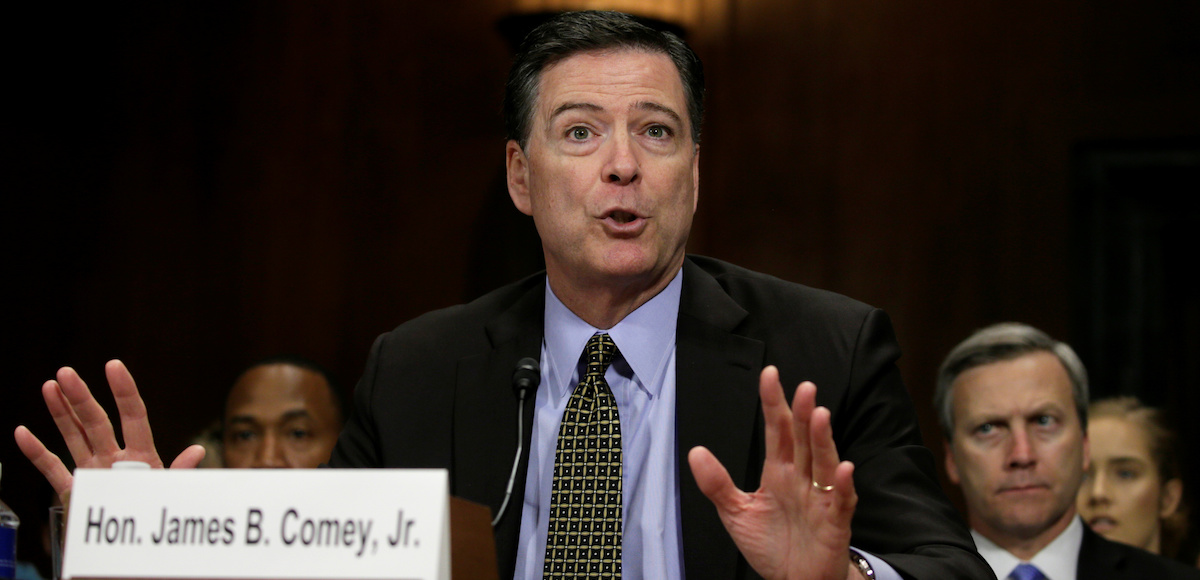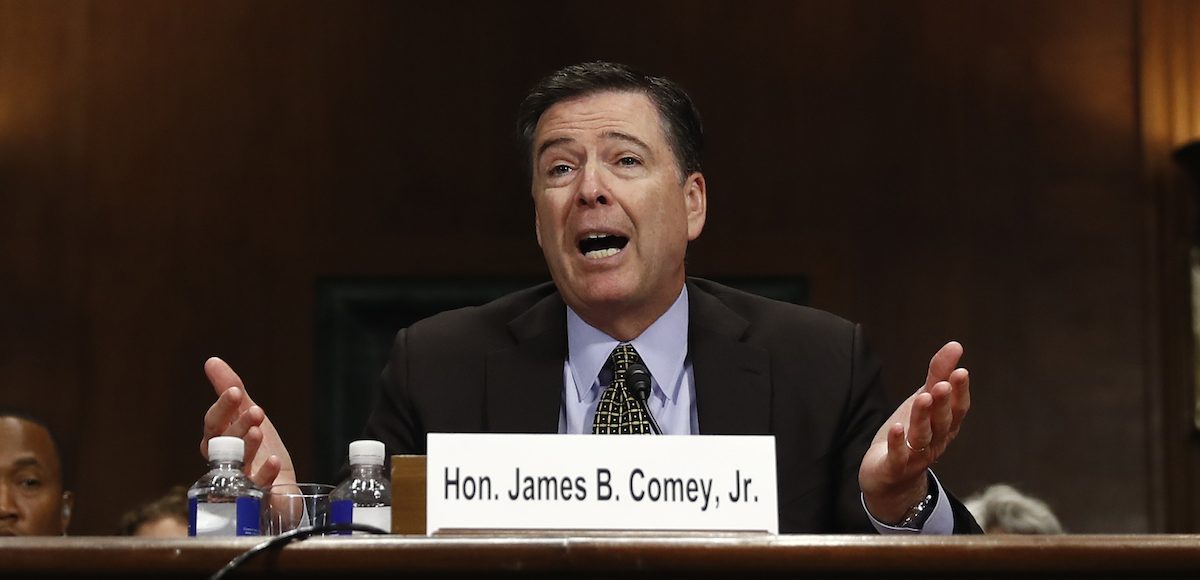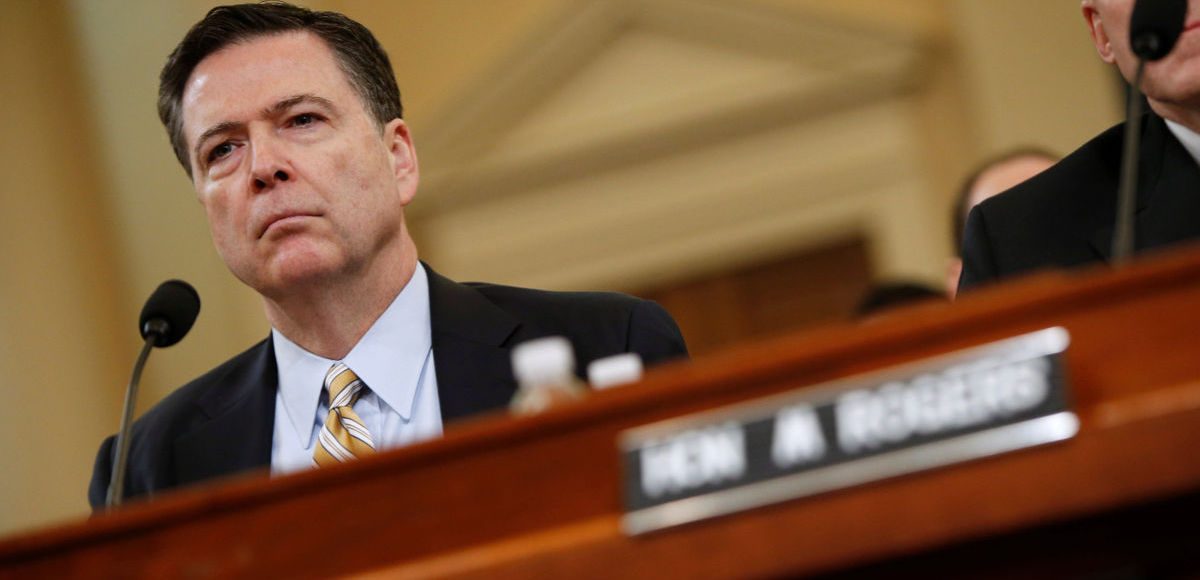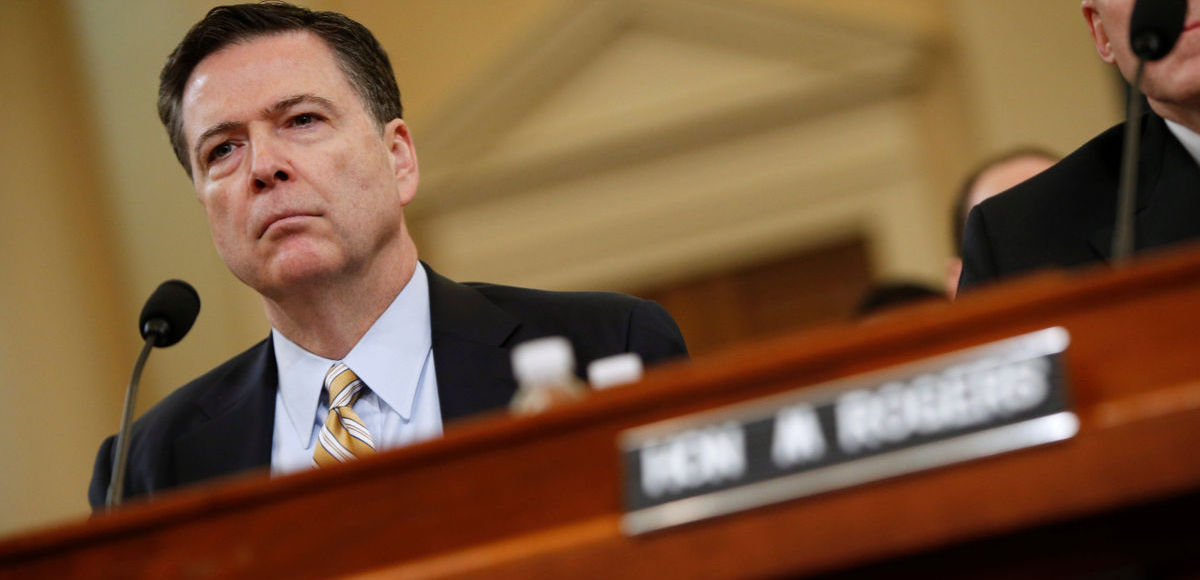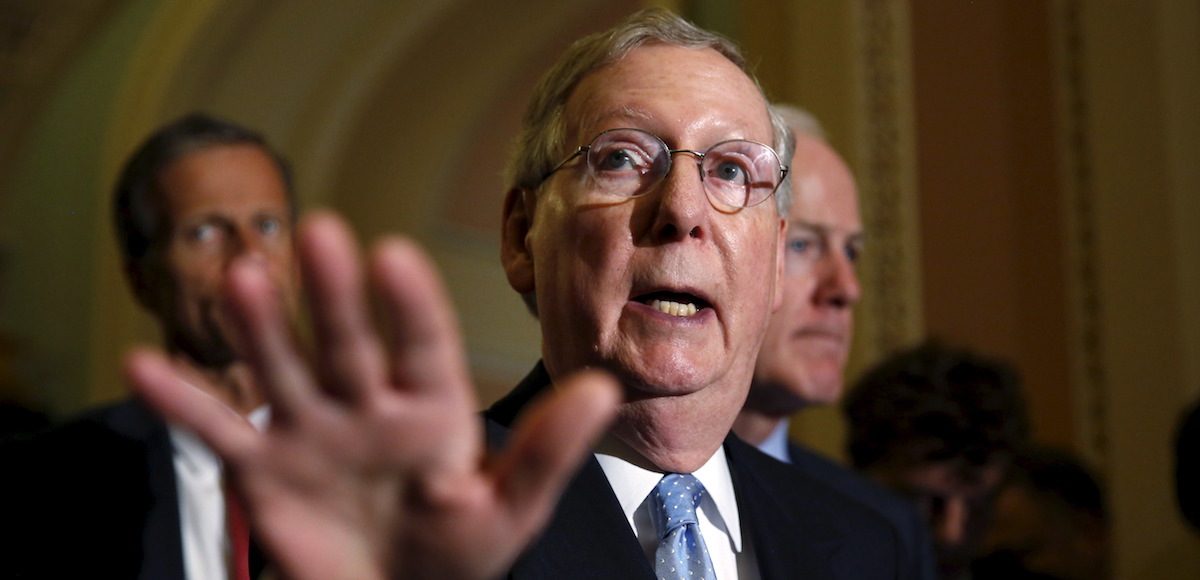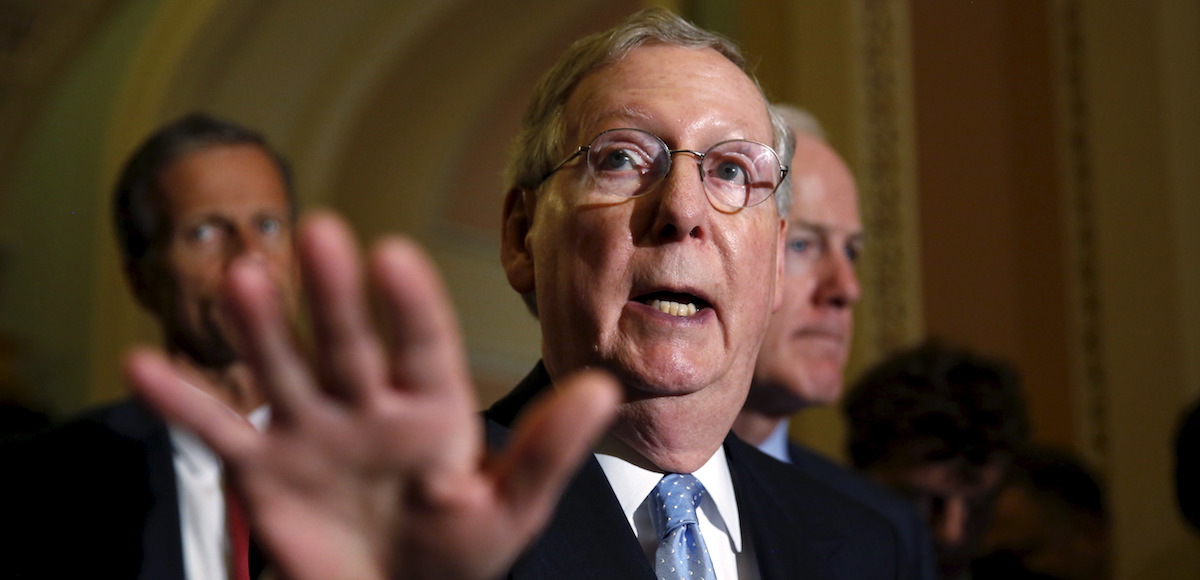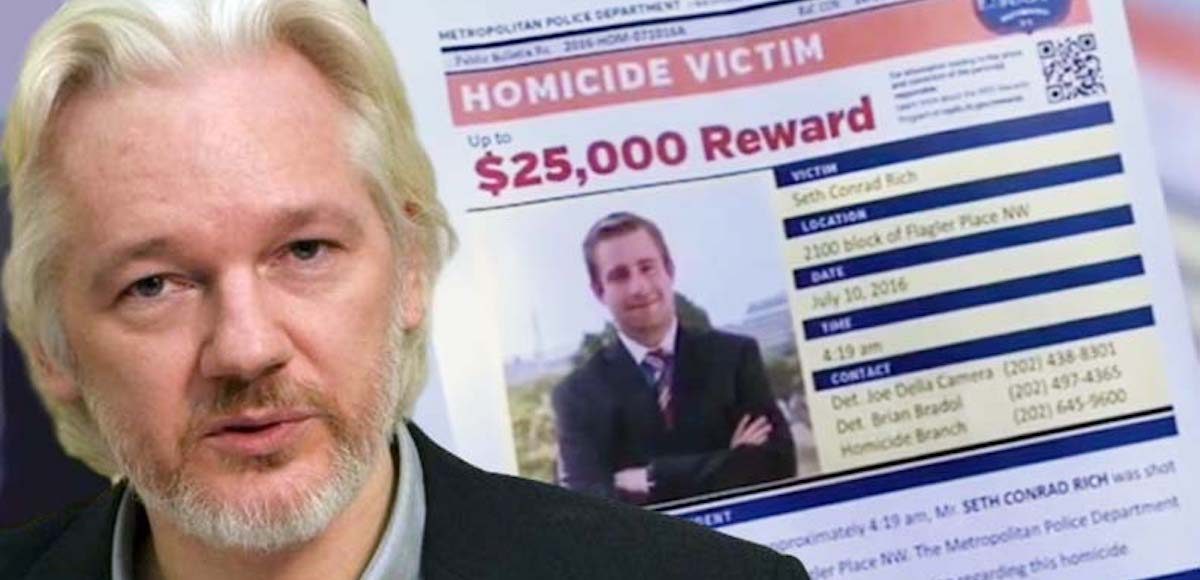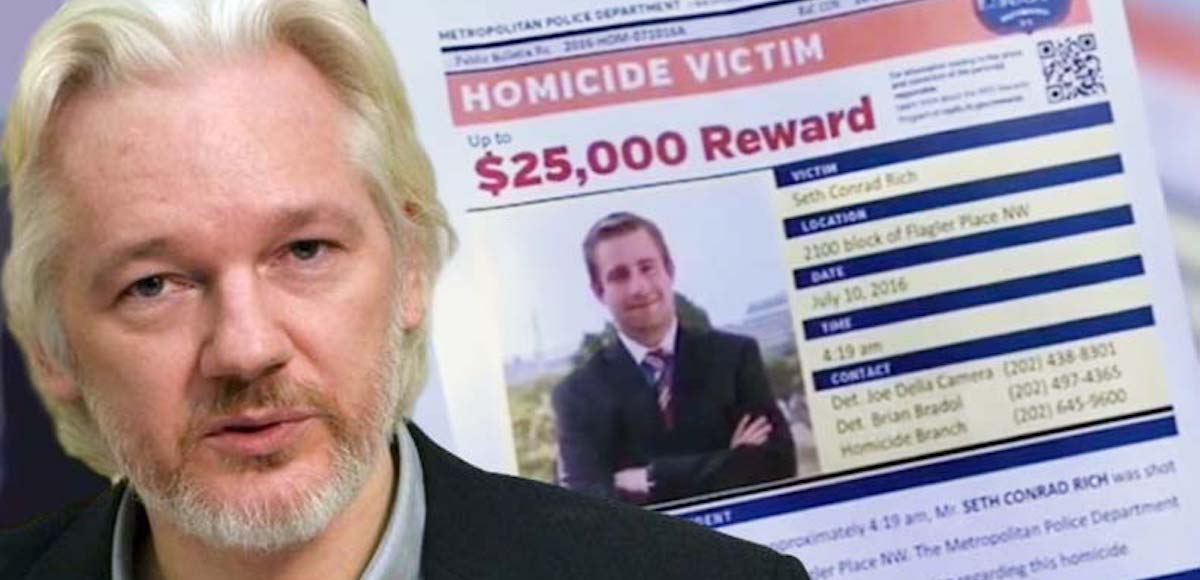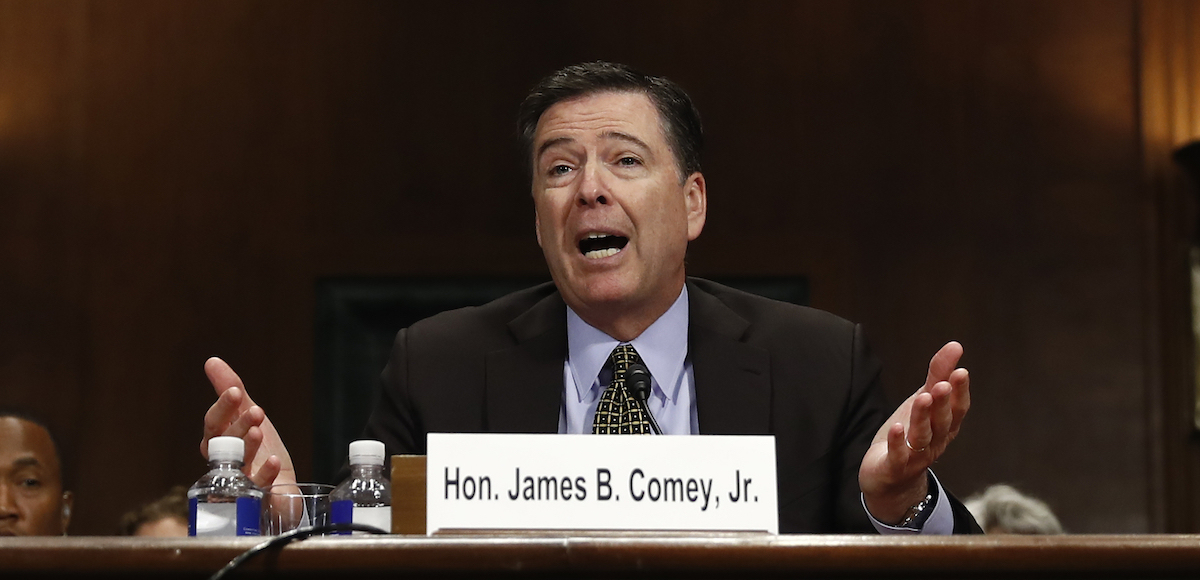
FBI Director James Comey testifies on Capitol Hill in Washington, Wednesday, May 3, 2017, before the Senate Judiciary Committee hearing: “Oversight of the Federal Bureau of Investigation.” (AP Photo)
Change elections, coups d’états, revolutions, civil wars, all are rungs on an escalating ladder of sudden power shifts within polities such as republics, empires, kingdoms, or oligarchies. As a scientist, I like to examine such occurrences in the light of the contemporaneous achievement of two conditions; the necessary and the sufficient. In the following paragraphs, I will define these conditions in this context and argue that right now, in the United States of America, they have already been met and the only open question is whether we are experiencing a change election, a change election followed by a coup d’état, or a change election followed by a coup d’état, followed by a civil war.
The common thread among all four modalities of sudden power shifts is just that, a power transfer that rather than following a continuous path with respect to time, encounters a singularity, a discontinuity, a time at which the rate of change of power flow with respect to time approaches infinity. The necessary condition for such a singularity is the massive concentration of power within one (among many) of the power centers that exist within a given polity. In other words, the necessary condition for a power transfer singularity is a pre-existing massive power imbalance, one that cannot be corrected quickly enough by the normal, continuous power transfer mechanisms that are available to the society in question.
In many cases, such a massive concentration of power in one power center is the result of decades and even centuries of peaceful continuous power flows. Hence, a society that prides itself on the peaceful transfer of power such as the US, can find itself quite suddenly faced with a massive power imbalance. An exacerbating factor to the necessary condition of massive power imbalance happens when power is concentrated in the “wrong” place; a place that flies in the face of major historical trends. This factor, when present, forces the power rebalancing to be more violent because the forces that demand it are not only internal, but also external. The result is often an escalation of the power transfer mechanism to its ultimate embodiment, that of a major civil war.
The sufficient condition for power transfer across a singularity to actually happen is the failure of the center that concentrates power to execute policies that work for the majority of the population or in Trump-speak to “do a good job”. Power flow, like all flows, experiences drag; a kind of natural inertia, a resistance to change. This resistance, given a specific society, is a function of the rate of change of power flows with respect to time; the greater the required rate of change, the higher the resistance. As previously mentioned, power singularities by definition involve near infinite rates of change and thus engender near infinite resistance.
This resistance can only be overcome if “things are bad”. Russian sailors had to be pretty damn unhappy to chuck their officers overboard in 1917 Petrograd (St. Petersburgh) and many Americans had to be pretty damn upset to take a risk on someone like Trump. So there we have it: a polity which experiences a major power imbalance between one power center and the rest of society, while at the same time experiencing a deterioration in the well-being (real or perceived) of many of its citizens, is rife for a singular correction.
The severity of the correction depends on several factors. Among them are the presence of a history and mechanisms for the peaceful transfer of power (ameliorating factor), the size of the pie to be re-distributed (the larger, the higher the level of escalation), and finally the aforementioned degree of alignment (or misalignment) of the existing power center with historical trends. The unique (both spatially and temporally) combination of these factors defines the degree of violence experienced when a society goes through a power flow singularity. These are the factors that determine whether tweets or cannon get the job done.
The 1860’s saw two power flow singularities that are worth exploring using the analytical framework previously presented. Japan experienced a civil war in which power was transferred from the 260 year old Tokugawa Shogunate to the Tokyo bourgeoisie and professional classes and the US experienced its Civil War, which saw power drain from below the Mason-Dixon Line to New York, Boston, and San Francisco.
In Japan, virtually all power was centered with the Tokugawa family after the first Tokugawa shogun, Ieyasu, unified Japan by defeating the Armies of the West at Sekigahara in the year 1600. Initially, the Tokugawa Shogunate was very successful in restoring peace and prosperity. This led to the arrival, for the first time in Japanese history, of a wealthy and numerous middle class of merchants, artisans, and professionals. By the 1800’s the Japanese warrior class, with which all power resided, was impoverished compared to the powerless bourgeoisie. Thus the necessary condition of extreme power imbalance was met; while two potential centers of power existed, only one, the samurai, had any.
The sudden power transfer via the mechanism of a civil war, however, had to wait for the necessary condition to be met, i.e. for the incompetence of the Tokugawa Shogunate to be laid bare for all to see. This happened with the arrival in Yokohama harbor of Admiral Perry’s gunboats in the 1850’s. The extreme ill-preparedness of the Shogunate to fight a modern military force became at once evident, when Perry was able to dictate his terms to the Japanese government. The Shogunate, literally a military wardenship of the country in the name of the Emperor, failed to do the one thing it was all about: provide for the common defense.
Once both the necessary and sufficient conditions were met, the only thing left to determine was the violence of the inevitable power shift. Unfortunately, exacerbating factors prevailed. Japan had no experience with the peaceful transfer of power. The Shogunate, a nativist, isolationist, and anti-technological regime, was completely at odds with a rapidly internationalizing and industrializing world. The only reason that the Japanese civil war did not reach the scorched-earth intensity of its American contemporary was the much smaller Japanese pie. At that time Japan was a small and poor country; the spoils were meager and clinging to power was not all that worth it. So Japanese samurai sold their swords to American tourists, cut off their topknots, and went into the Civil Service.
America was not to be so lucky. There as well, antebellum power was over-concentrated in the agrarian slave-holding South, while the rapidly industrializing North with its vast riches in railroads, energy, and heavy industry, was extremely under-represented in terms of its political power, not the least because of the nearly century old three fifths Constitutional compromise. While the US was by that time an established republic, with a long history of peaceful transfer of power, this ameliorating factor was over-ruled by the combination of two exacerbating ones.
Cash crop economies relying on slave labor and the institutions of slavery and serfdom were finished. Even Russia had just emancipated its serfs. The South, choosing not to abandon its economic base in favor of industrialization, was on the extreme wrong side of history. And the pie? Well, it was not only already very large, but rapidly expanding. In 1861, the US was by far the preeminent military power on the North American continent. There was no doubt of its expansion to the Pacific Ocean. The lure of westward expansion below the Mason-Dixon Line was too strong for the South to peacefully give up. The results are still ever present in today’s America; the wounds have yet to heal.
Since Russia is the tool of choice used by the perpetrators of the current coup attempt on American soil, it is fitting to analyze Russia’s own encounter with power flow singularity in early 20th century. In many ways, the Russian story resembles the Japanese example. High concentration of power with the imperial family and the nobility representing the agrarian center at the expense of the burgeoning commercial and industrial sectors created a significant power imbalance by the dawn of the 20th century. With Russia being a highly traditional and moribund society, much more similar to Japan than to the US, the sufficient condition, that of overt government incompetence, had to be met with gusto to provoke a violent power shift.
This happened in two pulses; first the devastating loss by Russia to Japan in the 1905 Russo-Japanese war prompted a revolution attempt. This attempt proved to be still-born; inertia could not yet be overcome by the inevitability of change. The colossal losses in the first years of WWI only nine years later, all of them the results of gross mismanagement and corruption, left no doubt; the Czar had failed in his most sacred of duties – the protection of Holy Russia. He had to go.
To the great misfortune of many millions of Russians and other denizens of the enormous Russian Empire, Russia hit the trifecta. Having no history of peaceful power transfers, its existing power concentrated in the hands of an antiquated regime that harkened back to Byzantium, the Russian Empire controlled a full one sixth of the planet’s landmass and immeasurable natural resources. It was a struggle to the death.
The case facing us in America circa 2016 through the present day is rather more nuanced than the examples so far cited. This is a good thing; in these situations clarity is often lethal. And yet, it is worth seeing what we may learn from history and how the analytical tools developed in this column may apply. There is little doubt that power in America has been flowing for decades via number of channels, to one seemingly inevitable destination.
In technology, power has been draining from the energy, transportation, and heavy industry sectors to the information technology and service sectors. In demographics, power has been flowing from white Christians to so called “people of color” minorities and Jews. Geographically, power has been flowing from the industrial heartland and the South to the coastal cities.
Constitutionally, power has been flowing from the States to the Federal government, and hence to Washington, DC. The convergence of these channels in the second decade of this century resulted in a power glut in Washington and along the coasts in what is called “Hillary’s Archipelago” and a power vacuum the oh-so-red rest of the country. Thus the necessary condition, an extreme power imbalance had been met.
Eight years of Obama saw him busily increasing rather than mitigating the power imbalance. Massive debt-financed hiring spree by the federal government is but one example. Not coincidentally, the same eight-year period saw deteriorating conditions for the powerless. Stagnating wages, real inflation and real unemployment that felt ten times higher than the government statistics would have them, were topped off by very real disdain exhibited towards the powerless by the powerful. Hence, the sufficient condition was also met. Obama and his folks had all the power and they misused it, stifling the real economy, racking up debt, and diminishing America’s standing abroad. America was ripe for a correction.
What kind of correction would it be? America is a big pie. In fact, it’s the biggest pie of all. Having power in America is having the ultimate power. At the same time, America has a long tradition of peaceful power transfer; over 150 years in fact, since the Civil War.
Pre-Trumpian progressive power in America is well-aligned with history; energy and heavy industry will always be needed, but in SpaceX’s reusable rocket it is the control system that makes the amazing achievement of landing that first motor stage on its tail to be reused possible. Everything else is 1960’s vintage technology. Yes, you need it, but it ain’t the thing. The “thing” is the silicon and the one and zeros burned onto it. As a result of these conflicting factors, it appears that America got its correction, the first since the Civil War, on the best available terms, a simple change election.
But not so fast. The size of the pie may have yet to have its final say. Trump’s resolute corrective actions are quickly damming the channels that carried power from red to blue and in some cases he is digging new channels, ones that go the other way. The oil pipelines, removal of burdensome regulations on coal, opening up offshore and arctic drilling, major investment in military hardware, all of these are pushing power back. Back to flyover country, back to White, back to the States, and most of all away from DC.
And of course DC is fighting back. The ridiculous Russia non-story, the unprecedented leaks from people who were sworn to keep secrets, the hysterical media, the talk of impeachment for made-up “crimes”, the congressional obstructionism from both parties, all of this has one goal – the removal of Trump from the presidency.
We are, right now, living through an attempted reversal of a properly constituted and recent election and the removal of a sitting president who had committed no crime. Such an eventuality, were it to become fact, would amount to a coup d’état and thus a major escalation on the ladder of American power singularity. And it may not be the last such escalation. America has already had one of the bloodiest civil wars ever in history and the bloodiest of its own time. Let’s hope history does not repeat itself.
